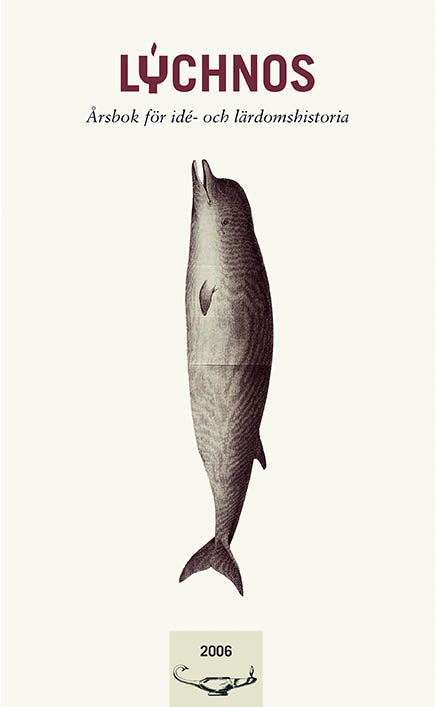Filosofins slut?
Medieteori och hermeneutik i tysk debatt
Abstract
This article treats the question of the end of philo- sophy, as it is articulated in the works of German media theorists Norbert Bolz and, foremost, Friedrich A Kittler. Its main aim is to expose the relationship between, on the one hand, Heideggerian conceptions of the history of philosophy and its end in the age of modern science and technology, and, on the other, contemporary German media theory. The article begins with a brief survey of the reception of French philosophy in Germany, and continues with an account of the fierce attack on Gadamer's hermeneutic philosophy launched by theorists such as Kittler and Bolz. Special attention is then given to Kittler's early essay "Forgetting" and his monumental Discourse Networks 1800/1900, and Heidegger's texts "The end of philosophy and the task of thinking" and "The question concerning technology". It is shown how Heideggerian conceptions of technology and philosophy have much in common with Kittler's, but also how these conceptions diverge in important ways. In particular, it is evident that a kind of technological determinism, which is alien to Heidegger, characterizes Kittler's theoretical position.
By focusing on conceptions of the end of philosophy, we gain insights into the general views of the history of philosophy underlying contemporary German media theory. The article ends with some brief remarks concerning the fruitfulness and the productivity of applying media theoretical perspectives onto the writing of the history of philosophy. The main point made in that connection is that media theory emphasises the technological conditions of philosophy frequently lacking in philosophical historiography, at the same time as it embraces an untenable technological determinism.
Downloads
Publicerad
Nummer
Sektion
Licens
This work is licensed under a Creative Commons Attribution 4.0 International License. The copyright for the work published in Lychnos remains with the authors.


